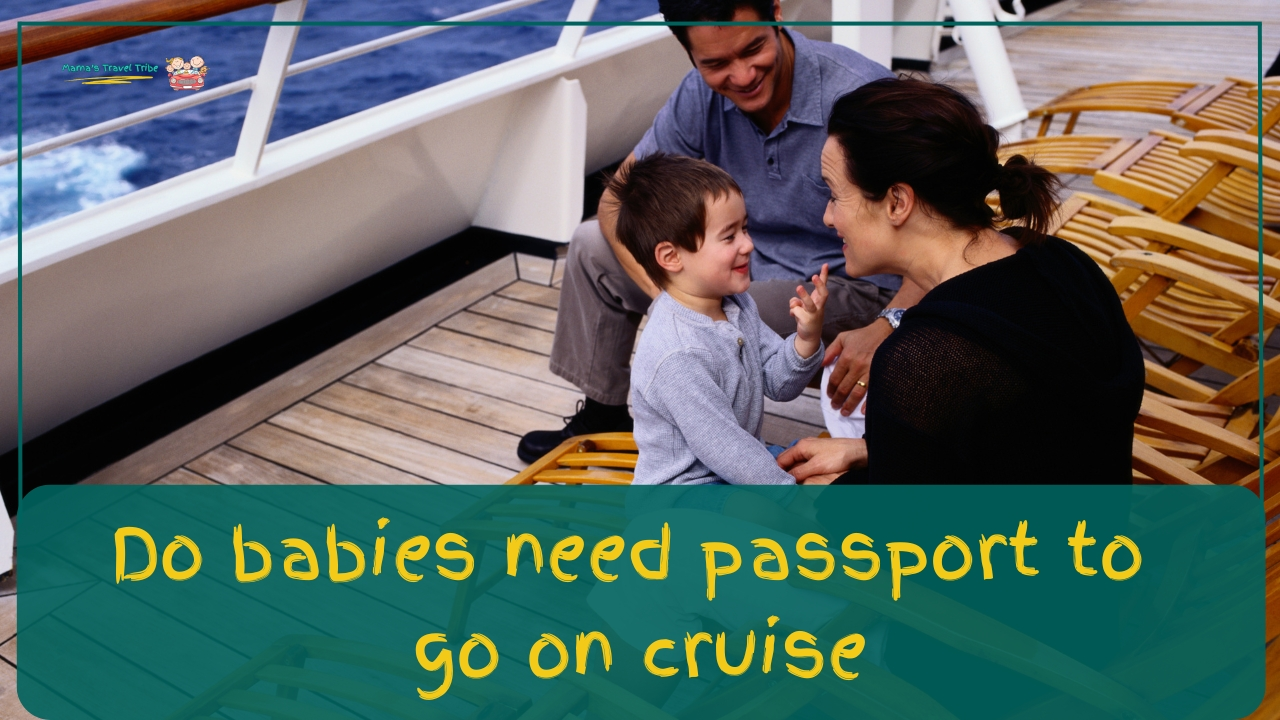“Do babies need passport to go on cruise?” is a crucial question for parents planning a family vacation on the high seas. In most cases, you should carry a child passport if you’re traveling internationally, but you should read the guidelines issued by the cruise lines to know for sure.
Don’t worry; I’m covering everything in this guide. Keep reading.
Do Babies Need Passport To Go on Cruise? (Everything to Know)
Generally, babies do need a passport to go on a cruise, especially if it’s an international route. However, for those cruises that begin and end at the same US port, a birth certificate might suffice.
As an experienced traveler, I recommend always checking with your specific cruise line, like Carnival or Royal Caribbean, because requirements can vary.
Alternative Documentation for Babies
When you’re planning a family cruise, knowing about alternative documentation is crucial. Now, let me answer another common question: “What documents does a child need to go on a cruise?”
For closed-loop cruises, you often can use a birth certificate as the main document for your baby. However, it’s not just about having a birth certificate. Other forms of identification might not be required for infants, but I advise you to carry additional documentation.
For instance, if you’re a single parent or a guardian, bringing along a parental consent letter can smooth out any potential bumps during your travel. This letter should state your relationship with the child and your authorization to travel with them. It’s all about ensuring a hassle-free journey.
Remember, each cruise line, whether it’s “Carnival” or “Royal Caribbean,” might have its own specific requirements. So, if you’re wondering, “Do I need a passport for a cruise,” I suggest always being over-prepared. Make sure you’re not just packing the right clothes but also the right documents, like the birth certificates and passports.
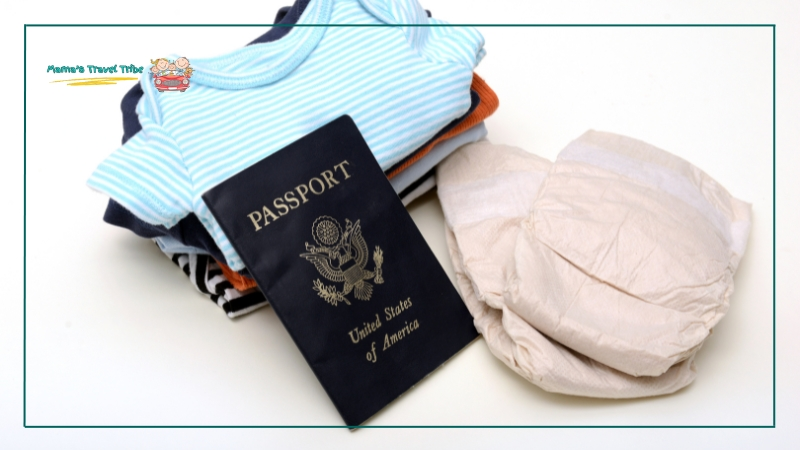
Speaking of birth certificates, if you plan to fly before or after your cruise, you might wonder, Do I Need My Child’s Birth Certificate to Fly Domestically? This article will help clarify the documentation needed for domestic flights, ensuring you have all your bases covered.
Which Is Better for a Cruise: A Passport Card or a Passport Book?
When it comes to cruising, I often get asked whether a passport card or a passport book is the better option. From my years of traveling, here’s the scoop: if your cruise is to Canada, Mexico, the Caribbean, or Bermuda and doesn’t involve air travel, a passport card will do just fine. It’s cheaper and more compact.
However, for any other international cruise or if you might need to fly from a foreign port back to the US, the passport book is essential.
The passport book is universally accepted and required for international air travel. So, if there’s even a slight chance you might need to fly home from a foreign country, having a passport book with you is a wise choice.
It’s all about preparing for the unexpected, and trust me, I’ve seen plenty of unexpected situations in my years!
Remember, both documents are valid for entering or rejoining the US from certain countries by land or sea. But for that full peace of mind and flexibility on your travels, I recommend going with the passport book.
When a Passport Is Necessary for Babies? (Remember the Occasions)
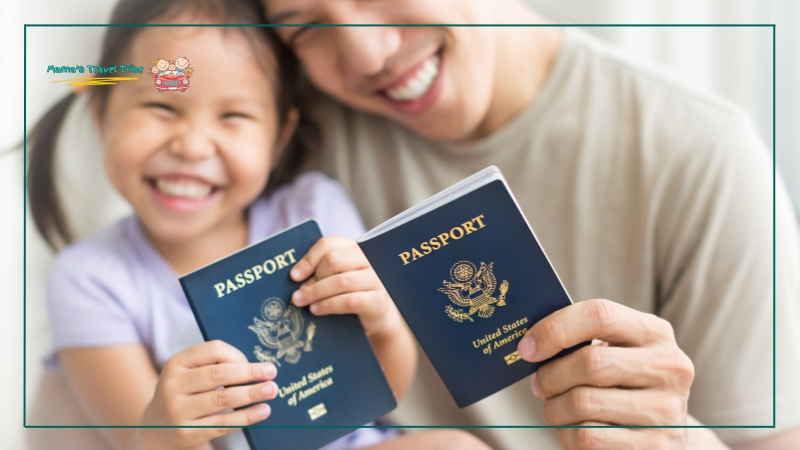
A passport is necessary for babies when traveling on international cruises to ensure smooth entry and exit at foreign ports. It’s also essential for re-entry into the home country and is required for any air travel, including emergencies during the trip.
International Cruises
When you’re setting sail across international waters, a passport for your baby is a must. This document is crucial as it’s recognized globally as a form of identification. For example, if your cruise stops in different countries like Mexico, the Bahamas, or anywhere in Europe, your baby will need a passport, just like any other traveler.
I’ve seen many parents caught off guard, assuming infants might be exempt from these requirements. But trust me, even the youngest travelers need to have their paperwork in order. Make sure to apply for your baby’s passport well in advance of your trip.
So, it’s true that traveling internationally with a baby can be a unique challenge. If you’re also planning to fly internationally, check out How to Fly With a Newborn: 5 Essential Tips Every Parent Should Know.
Cruises That Stop at Foreign Ports
Whenever your cruise itinerary includes stops at foreign ports, a passport for your baby is absolutely necessary. These ports, located in countries outside of the US, require all visitors, regardless of age, to present a valid passport.
This rule ensures that your little one is recognized as a legitimate traveler under international travel laws.
Emergency Situations
It’s also smart to have a passport for your baby in case of emergencies. If you need to fly back to the US unexpectedly from a foreign port, a passport will be required.
I always tell my friends and clients to prepare for the unexpected when traveling, especially with little ones. Whether it’s a family emergency, a health issue, or just an unplanned change in travel plans, having a passport can make these stressful situations a bit easier.
If your baby has any health issues, it’s crucial to be prepared. For tips on managing travel with a sick child, check out Traveling With a Sick Child? Follow These Easy Tips.
When a Passport is Not Necessary for the Babies? (Let’s Find Out)
For babies, a passport is not necessary on closed-loop cruises. These are those round-trip cruises that start and end at the same US port. In these cases, other forms of identification, such as a birth certificate, should be enough.
Closed-loop cruises begin and end in the same US port and usually travel through the Caribbean, Bermuda, Canada, or Mexico. Instead of a passport, you can often use a certified US birth certificate for your baby.
This option is very helpful for families who haven’t had the chance to secure a passport for their infant yet. Remember, while the birth certificate can serve as proof of US citizenship, it’s always wise to check the specific documentation requirements of your cruise line.
Some may still recommend or prefer a passport for all passengers, including infants, as it’s the most “robust” form of identification.
In my experience, a passport is also useful in unexpected travel changes, like needing to fly home from a foreign port due to emergencies.
People often ask, “Do You Need a Passport When Cruising to the Virgin Islands?” When cruising to the US Virgin Islands, citizens do not necessarily need a passport, thanks to their status as US territories. However, carrying a passport is highly recommended for seamless travel, especially for re-entry into the mainland US.
I always advise travelers to carry a passport when cruising to the Virgin Islands, despite the relaxed requirements. Situations like medical emergencies or unexpected travel changes are easier to manage with a passport.
How Do Different Cruise Lines Handle Infant and Child Documentation?
Different cruise lines have specific requirements for infant and child documentation, typically mandating a passport for international waters, while some may allow birth certificates for closed-loop cruises. Here’s a detailed table summarizing the passport and documentation requirements for babies across various popular cruise lines:
| Cruise Line | Infant Requirements (<2 years) | Child Requirements (2-17 years) |
| Carnival Cruise Line | Passport recommended; birth certificate may suffice for closed-loop cruises | Passport recommended; birth certificate may suffice for closed-loop cruises |
| Royal Caribbean | Passport recommended; may travel with birth certificate on closed-loop cruises | Passport recommended; may travel with birth certificate on closed-loop cruises |
| Disney Cruise Line | Passport recommended for all travels | Passport recommended for all travels |
| Norwegian Cruise Line | Valid passport and any necessary visas | Valid passport and any necessary visas |
| MSC Cruises | Valid passport and any necessary visas | Valid passport and any necessary visas |
| Princess Cruises | Valid documents | Valid documents |
Carnival Cruise Line
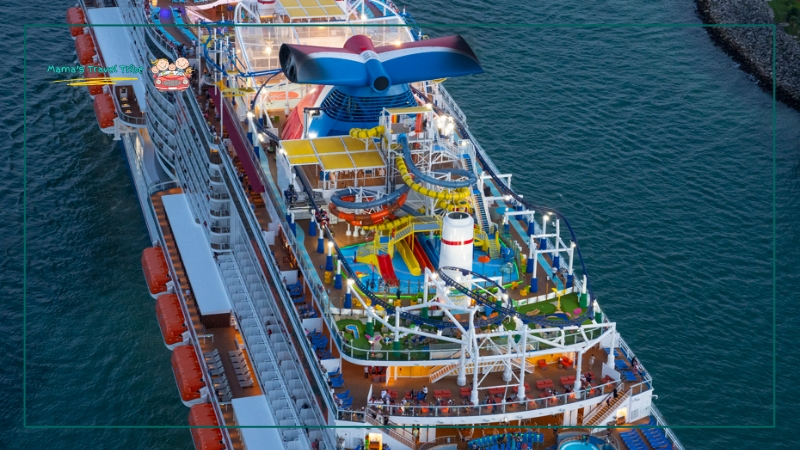
A lot of people ask me, “Do you need a passport for a cruise carnival?” Carnival Cruise Line usually needs passports for everyone on international trips, including babies. However, for closed-loop cruises starting and ending in the same US port, babies and kids might just need a birth certificate and adults a photo ID.
It’s key to check with Carnival ahead of your journey, as having a passport can prevent issues, especially if you need to unexpectedly leave the ship in a foreign port or fly back to the US.
That’s all about do minors need passport for Carnival cruise. Now, let’s discuss some other cruises.
Royal Caribbean
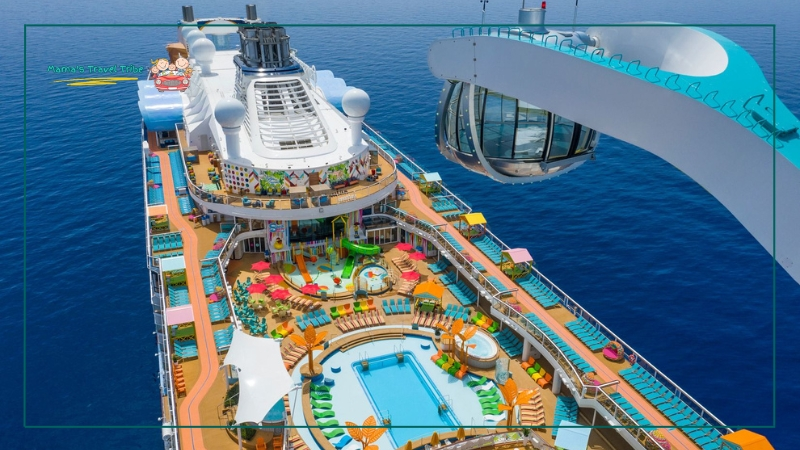
Most parents often ask, “Does child need passport for cruise Royal Caribbean?” Royal Caribbean recommends all travelers, no matter their age, have a passport for their cruises, particularly those going abroad.
However, for round-trip cruises that return to the same US port, children might be okay with just a birth certificate, and adults with a photo ID. Remember, a passport is crucial if you have to disembark and re-enter from international ports unexpectedly.
Royal Caribbean minor traveling with one parent can get a bit complicated. You’ll need certain documents. Here are the key points you need to know:
Identification and Proof of Citizenship: People often ask, “Do you need a passport for a cruise Royal Caribbean?” Yes. Here’s what you should have:
- A valid passport.
- For cruises that start and end at the same US port (closed-loop cruises), a birth certificate and government-issued photo ID (for the parent) may suffice.
Parental Consent: If a minor is traveling with only one parent, Royal Caribbean requires a notarized letter of consent from the non-traveling parent. This letter should state that the child has permission to travel with the accompanying parent and include the dates and destinations of the trip.
Legal Documentation: If applicable, bring any legal documents that prove custody arrangements or the reason the other parent is not available to provide consent. This can include a court order, death certificate, or other legal papers.
Contact Information: It’s advisable to have the contact information of legal guardian readily available in case the cruise line needs to verify any information.
Additional Forms: Depending on the destination, additional forms or visas might be required.
Disney Cruise Line
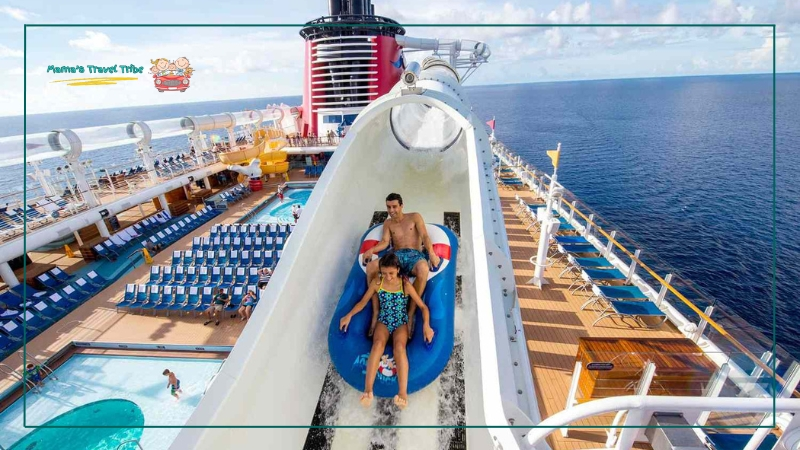
Ever wondered, “Do kids need a passport to go on a Disney Cruise?” Disney Cruise Line advises that all passengers, including little ones, carry a passport. While a birth certificate and photo ID might work for closed-loop cruises, traveling abroad, like to the Bahamas or the Caribbean, definitely requires a passport.
Disney aims to ensure all families are well-prepared for any travel scenario, promoting passports as the most dependable travel document.
Norwegian Cruise Line
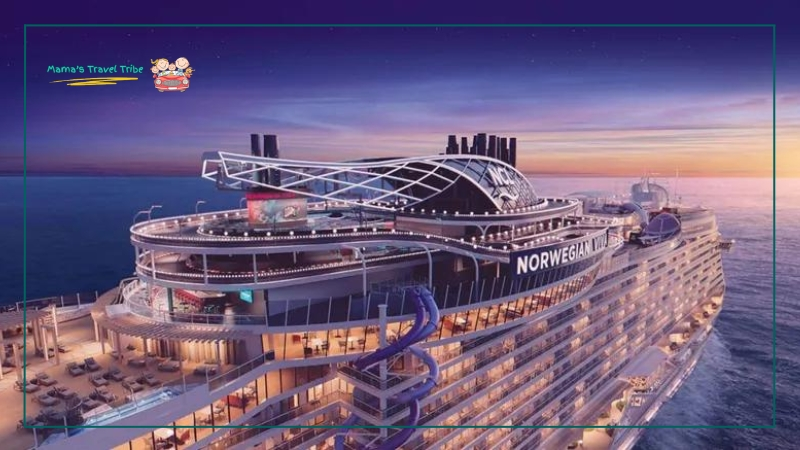
Norwegian Cruise Line enforces strict rules: infants and children up to 17 years must have a valid passport and necessary visas for all cruises. This strict policy ensures adherence to international travel laws.
Also, if a child is traveling with only one parent, I suggest having a notarized consent letter from the other parent. This will ease port processing and address custody concerns.
MSC Cruises
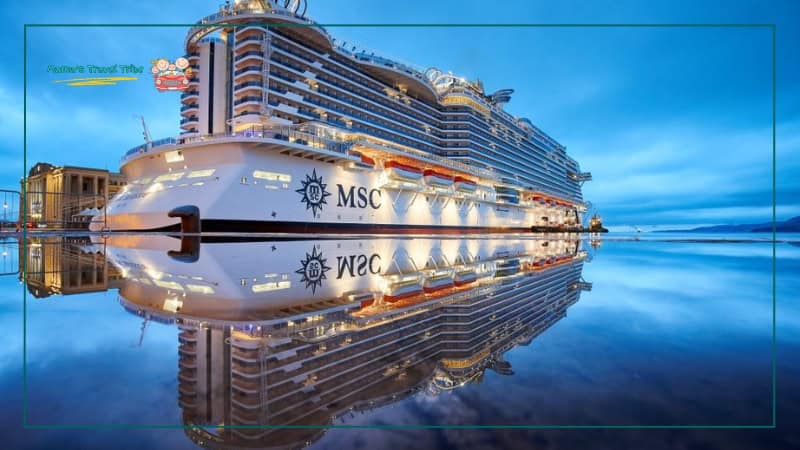
Similar to Norwegian, MSC Cruises demands that all kids traveling must have a valid passport and visa, regardless of the destination. For children traveling without one parent, MSC often requires a notarized consent letter, emphasizing safety and compliance with international travel rules.
Princess Cruises
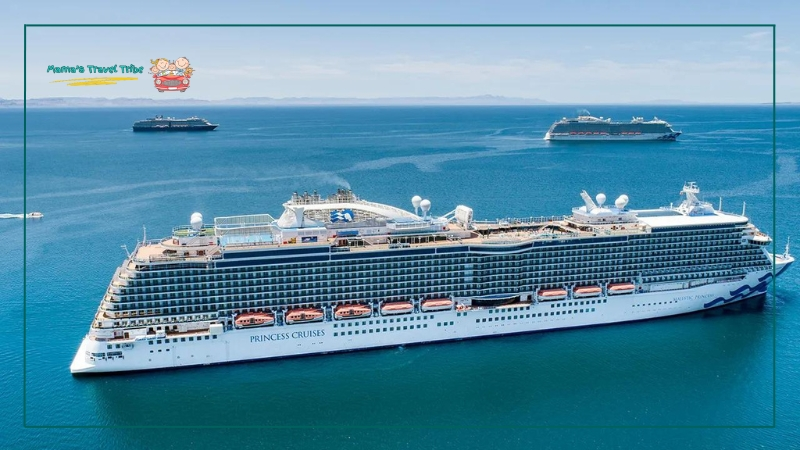
Princess Cruises offers more flexibility in travel documents for young passengers. They accept a passport, birth certificate, or other citizenship proof. If a child travels with just one parent, they suggest bringing a notarized letter of consent from the other parent.
This helps ensure a smooth process during boarding and landing, managing any legal matters effectively during international trips.
What Should Parents Know Before Planning Shore Excursions?
Parents planning shore excursions should check activity suitability for children, confirm required documentation like passports, and understand local safety standards. Additionally, packing essentials like sunscreen, water, and comfortable clothing will ensure children’s comfort and safety during outings.
Assessing Activity Suitability
Before booking any shore excursions, I always remind parents to check if the activities are suitable for their children’s ages and interests. Some excursions might be too physically demanding for little ones, or they might not capture the attention of your teenagers.
For instance, a long historical walking tour might be a bore for toddlers, whereas a beach day could be perfect. Most cruise lines offer detailed descriptions of excursions, so you can choose something that’s just right for your family.
Checking Documentation Requirements
When planning shore excursions, especially in foreign countries, it’s crucial to know what identification documents your children will need. Typically, I recommend carrying a passport for each family member, as some destinations may require them for entry, even just for a day trip.
Also, if you’re traveling as a single parent or with children who are not your own, having a notarized letter of permission from the other parent or guardians can be necessary. This document can help answer any questions about guardianship and is a must-have in your travel kit.
Understanding Local Safety Standards
Safety is paramount on any excursion, and different destinations may have different standards. I advise parents to research and inquire about the safety measures of each activity. This might include:
- Asking about the presence of lifeguards
- The type of terrain
- The weather conditions expected
- The tour provider’s overall safety history is included.
It’s also wise to check if the cruise line recognizes the tour operators, which often suggests a certain level of safety and reliability.
Preparing for Health and Comfort
To keep your kids comfortable and healthy during shore excursions, pack essentials like sunscreen, hats, comfortable walking shoes, a thermometer, and plenty of water.
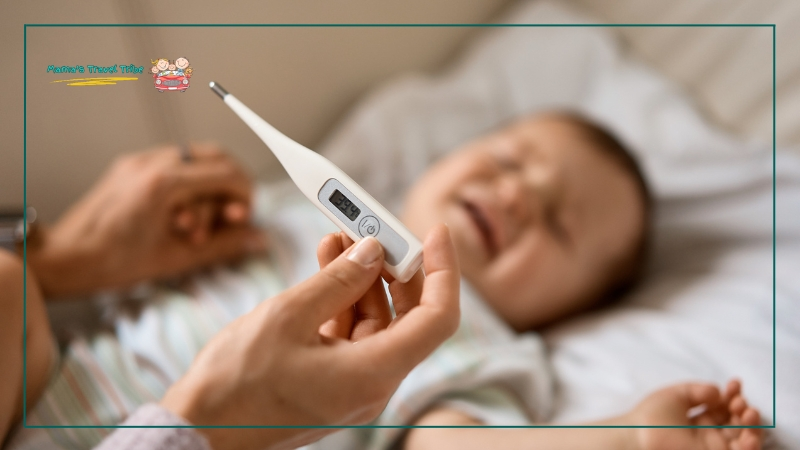
I’ve found that snacks, socks, and toys can also be a lifesaver to stave off hunger on longer outings.
Moreover, if your child has specific health needs, such as allergies, carry any necessary medications and ensure you know how to communicate these needs in the local language if possible. Being prepared can make the difference between a stressful day out and a day full of wonderful family memories.
Additional Travel Considerations for Babies
When traveling with babies, it’s essential to plan beyond basic documentation. Parents should consider the baby’s comfort, health, safety, and the logistics of traveling with infant gear. Being prepared can make your trip smoother and more enjoyable for everyone.
Packing Essentials for Comfort
When I pack for a cruise with little ones, I always start with the essentials: diapers, wipes, a change of clothes, and baby food or formula. Here’s a checklist I’ve refined over the years:
- Diapers and Wipes: Enough for the trip duration plus extra for delays.
- Clothing: Layered outfits to adjust to changing temperatures.
- Feeding Supplies: Bottles, formula, bibs, and portable snacks.
- Sleeping Gear: A portable crib or bassinet.
Having these items can prevent discomfort and fussiness, making the cruise more relaxing for you and your baby.
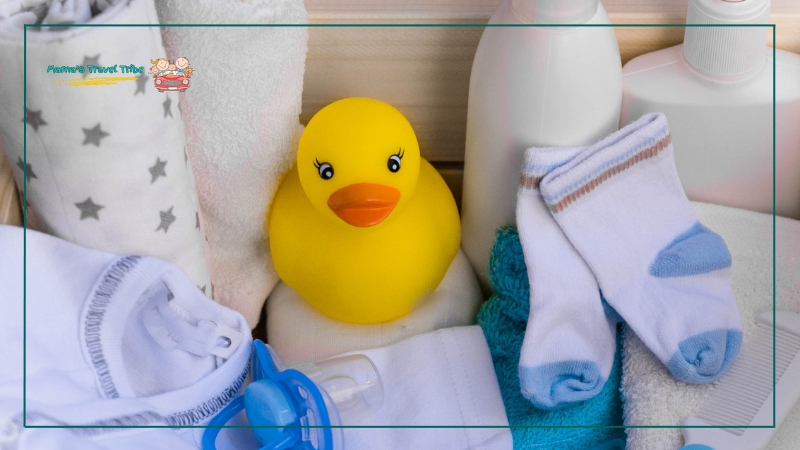
Health and Safety Precautions
Health safety is non-negotiable. Here are the steps I recommend:
- Consult Your Pediatrician: Before traveling, discuss your travel plans to ensure your baby is fit for the trip and up-to-date on vaccinations.
- Medications: Pack any prescribed medications and a basic first-aid kit.
- Sun Protection: Babies’ skin is sensitive, so include hats, baby-safe sunscreen, and shade covers.
Managing Baby Gear
Traveling with a baby means lots of gear. To keep it manageable, I use these strategies:
- Lightweight, Collapsible Equipment: Choose a stroller that’s sturdy but folds down for easy transport.
- Baby Carrier: A hands-free way to keep your baby close in crowded areas.
- Check Cruise Line Accommodations: Some cruise lines offer cribs or strollers, so you might not need to bring your own.
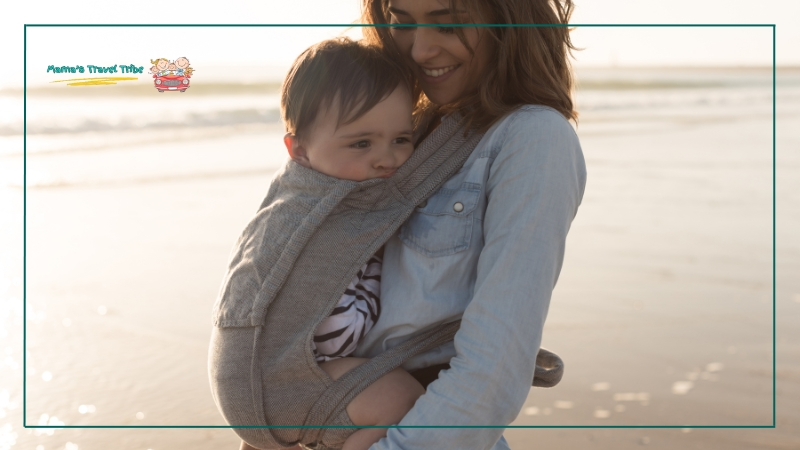
Creating a Baby-Friendly Itinerary
Craft an itinerary that suits your baby’s routine. This includes:
- Timing: Schedule activities around your baby’s nap and feeding times to maintain a routine.
- Activity Selection: Opt for shorter, baby-friendly activities that don’t require long periods of silence or stillness.
- Rest Periods: Build in downtime for your baby (and you!) to rest and recharge.
Balancing activity with rest is key to a happy baby and a pleasant trip.
By considering these additional factors, you can ensure that your cruise with a baby goes as smoothly as possible. It’s all about preparation and flexibility.
Conclusion
Here’s a quick summary of what you need to remember:
- Passport Requirements: Generally, babies do need a passport for international cruises.
- Closed-Loop Cruises: For cruises at the same US port, a birth certificate might suffice.
- Additional Documentation: Always consider carrying additional documents like parental consent forms if traveling with one parent or as a guardian.
- Check with Cruise Lines: Specific requirements can vary by cruise line, so it’s essential to verify details with them directly.
Armed with the right information and preparations, your family’s cruise adventure can be both fun and stress-free!

